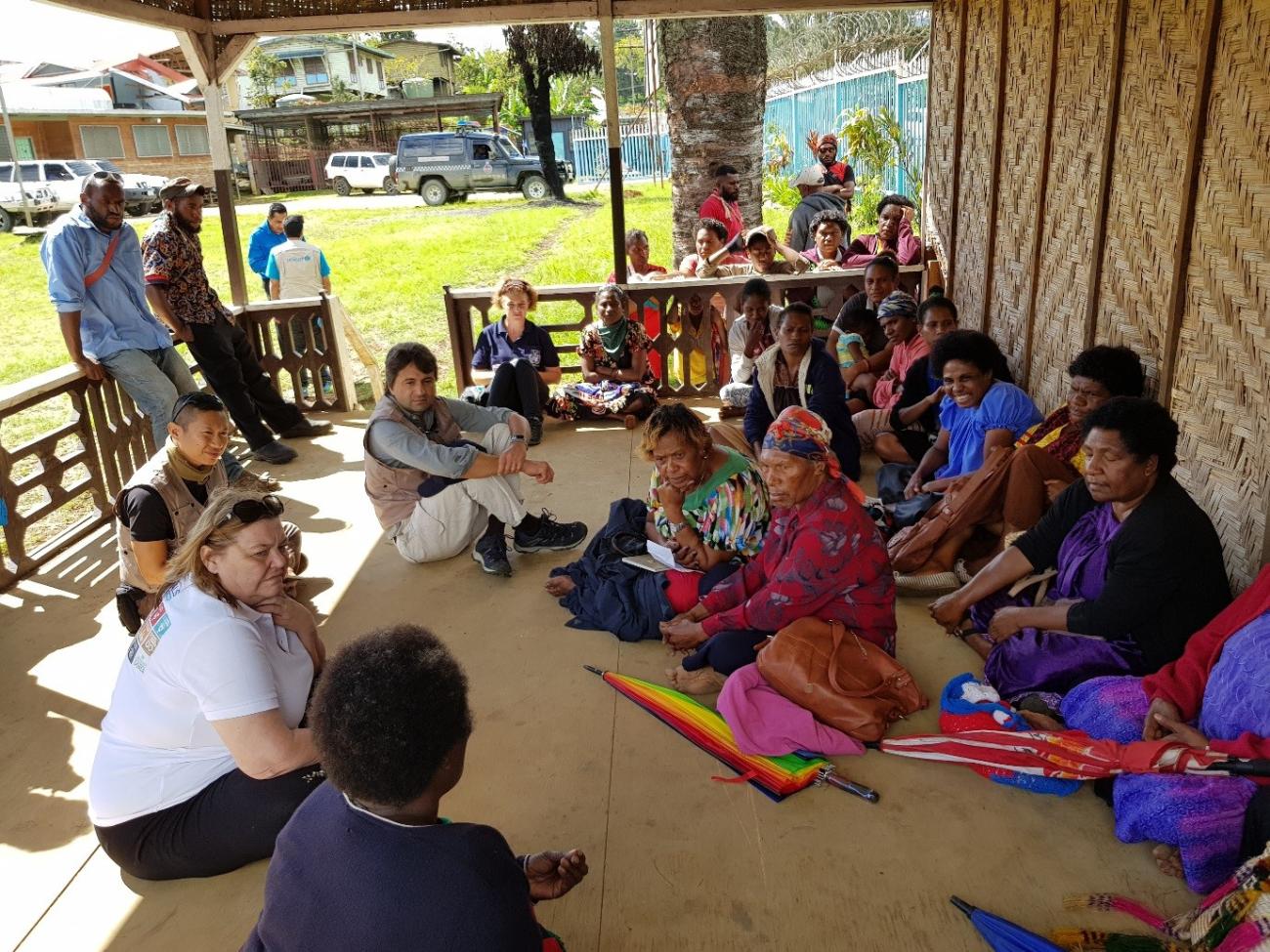In Papua New Guinea’s disaster response efforts, the health and safety of vulnerable groups such as women and children are protected following a devastating earthquake

On 26th February, a 7.5 magnitude earthquake hit the Highlands Region of Papua New Guinea, affecting an estimated 544,000 people in five provinces.
The five provinces affected included, Enga, Gulf, Hela, Southern Highlands, and Western Provinces. More than 270,000 were estimated to be in need of life-saving assistance. Women, adolescent girls, female-headed households, persons living with disabilities, pregnant and lactating women, older persons and children, were particularly at risk of exposure to incidences of violence, including those relating to accusations of sorcery.
The United Nations rallied to support the Government in the wake of the earthquake. The Highlands humanitarian response coordinated by the UN, mobilised over US$ 20 million and reached over 200,000 people in need in the earthquake affected areas. This included reaching people living in areas that are the hardest to reach in the country with vital assistance, including food, water and sanitation.
United Nations agencies collaborated on programmes to ensure that women and children have access to support and protection during the disaster response. Ten safe spaces acted as coordination points, enabling access to a range of emergency support, and met the immediate psychosocial needs of women and children. Emergency psychosocial support and critical services to survivors of gender-based violence were provided by 110 trained community mobilisers. As a result, over 20,000 women and girls received psychosocial first aid and counselling services. Today these community volunteers and workers, including those at the Child Friendly Spaces in the Southern Highlands and Hela Province, make up a network able to recognise symptoms of trauma and stress.
One of the many stories of the ways in which women or girls were able to access the protection and services they needed during the disaster includes that of Anna. Anna is a Community Mobiliser from Hela Province, who supported a ten-year-old girl to access much needed health and legal services. The girl was raped by a man in the community and was too terrified to tell her parents, suffering in silence and alone. After hearing Anna talk to the community about such issues, the girl sought her help and Anna recognised that the girl was showing signs of trauma. Anna encouraged the girl to speak to her parents, while she also spoke with the girl’s parents, urging them to support their daughter. As a result, the parents took their child to the health clinic for treatment and then to the police station.
Another story is Betty’s, an 18-year-old mother of two young children from a village located in Hela, one of the areas badly affected by the earthquake. Julian went into labour in the early hours of the morning. Unfortunately, after hours of exhausting labour, the baby was found to have hydrocephalus, a condition of fluid in the brain that causes the head to swell. Sadly, the baby did not survive, and Julian’s life was in grave danger. At the time, rain had affected mobile network coverage. The United Nations facilitated a helicopter to take Julian to the Mendi General Hospital and her life was saved.
In partnership with the government, the United Nations in Papua New Guinea works to ensure that pregnant and lactating mothers are supported during times of disaster. Following the earthquake, the UN distributed more than 2,500 dignity kits and emergency reproductive health kits to pregnant and lactating mothers in the two most earthquake-affected areas of the Nipa-Kutubu District of Southern Highlands Province. It is such responses as these, addressing the needs of vulnerable groups during disaster, that saved the life of Julian. ‘I am very happy for the help you have provided,’ said Julian. ‘Thank you very much.’




